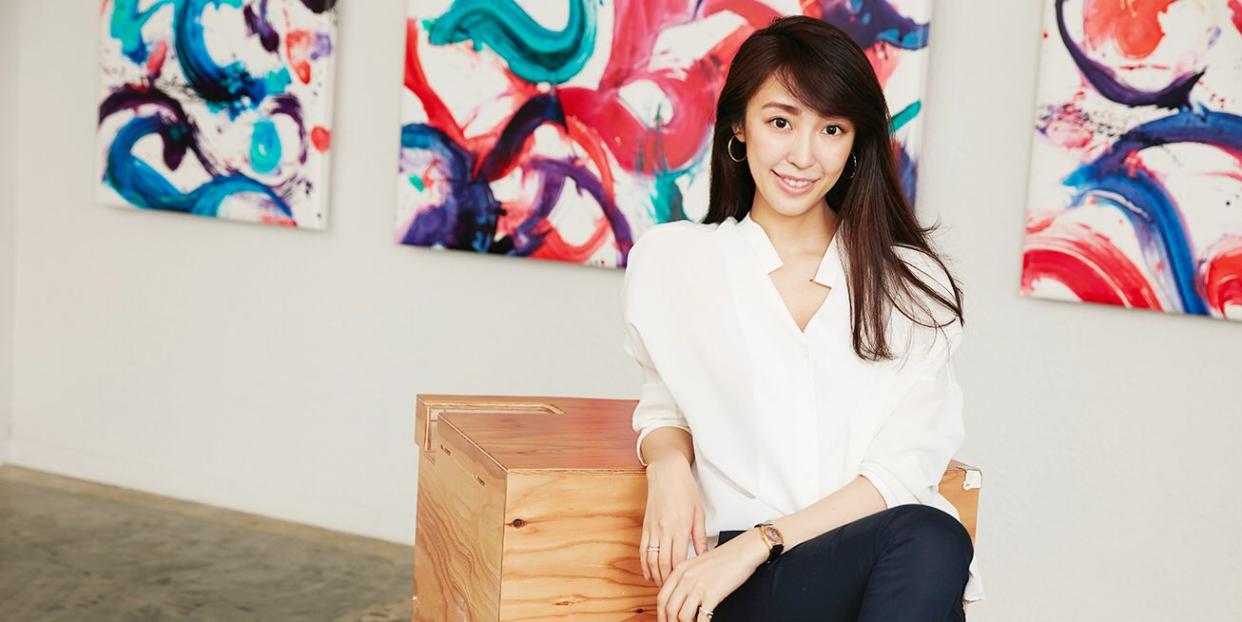How to be a successful multi-hyphenate

Ever since the author Emma Gannon published her book The Multi-Hyphen Method, to widespread acclaim, there has been a growing cohort of young professionals exploring the idea of a portfolio career – juggling multiple roles, or pursuing a passion project or side hustle alongside a day job that pays their way.
One person who has made a virtue of being a multi-hyphenate is Yureeka Yasuda, a Japanese-born entrepreneur whose projects span the worlds of art, food and drink, journalism and luxury retail. Born in Japan to an art-dealer father, Yasuda moved to suburban New Jersey in the US when she was just two, before returning to Tokyo to study at an international school aged 13. “It was there that I learnt to hold my own, to be proud of who I am,” she reflects. “At first, I felt as if in the US I’d been too Japanese, and in Japan I was acting too much like a Westerner – it took me a while to realise that being a mix of cultures could be my strength.”
Yasuda, who studied anthropology at university but never felt especially drawn to academia, had her first break when she tracked down the owner of an American tea company, Harney & Sons, to persuade him to sell a particular cinnamon blend she was convinced would perform well in the Japanese market. “I’d tried this amazing tea at the Gramercy Park Hotel in New York, and I really believed in the product and wanted to sell it in Japan,” she explains. “So I went to see Michael Harney speak at a forum, and then I stayed on after the session to meet him in person.” She was still in her early twenties at the time, but convinced him to agree to a one-year contract, distributing to local stores across Japan, and her product performed brilliantly. “It kind of became the pioneer of flavoured teas there, because previously the Japanese had only really been drinking green or roasted blends.” Under Yasuda’s leadership, the Tea Time Company operated a number of stores and events throughout Japan, including opening Harney & Sons’ flagship boutique in Nagoya.
Throughout her time working in tea distribution, Yasuda also freelanced as a columnist for titles such as Forbes Japan and the online art-collector’s bible Larry’s List, drawing on the knowledge and passion from art she had inherited from her father. People began contacting her for advice on what to buy and collect; initially, she was resistant to the idea of following in her father’s professional footsteps, but the more she travelled to galleries and art fairs around the world, the more she realised she had a knack for spotting an investment piece. “It just felt natural to start helping people interested in art – and in the first month alone, I sold so many paintings,” she recalls. “I wasn’t looking for collectors and clients, but a lot of my friends felt intimidated by the art world, so I started taking them to galleries to help them start conversations…” In 2017, she founded her art-advisory business Tokyo Art Office, and has run it successfully ever since.
Still, Yasuda has never lost her love of tea, and 2020 saw her launch a new venture, Sayuri, which aims to bring artisanal Japanese matcha to an international audience. Having previously qualified as a tea sommelier (a six-month-long process that included blind tastings, demonstrations and written exams), she believes that the ritualistic aspects of tea-drinking culture are missing in the Western world. “In Japan, tea is considered an art form, alongside calligraphy and flower arranging,” she explains. “I know that we’re all busy, and we don’t have time to perform tea ceremonies every day, but just the act of preparing yourself a bowl of matcha or a cup of tea can be really meditative.”
Balancing her nascent tea empire (Sayuri is soon to launch at Harrods, and Yasuda eventually hopes to grow the brand internationally) with her responsibilities as an art dealer, which include a number of commissions for hotels and restaurants, must be quite the juggling act, but Yasuda has developed strategies for managing the multiple demands on her time. “When someone asks you to take on a project, don’t reply on the spot,” she advises. “Take a few days to think about it, because it’s much worse to disappoint someone later down the line – saying no is much easier than saying sorry. Knowing your strengths and weaknesses is really important.” Her other recommendation is to harness the power of your network wherever possible. “It’s important to keep talking about your passion, because you never know who’s listening in,” she says. “I’ve got to the point where I am quite open in terms of asking things and exploring ideas with other people.”
Finally, never apologise for having a broad spread of interests. “Some people build a career based on a particular skill-set, but I feel like mine is really just being myself and being able to connect the dots between people,” says Yasuda. “And I think the world is coming round to that idea too, with so many industries and genres cross-pollinating. I’m happy we’ve finally come to that place.’
You Might Also Like


